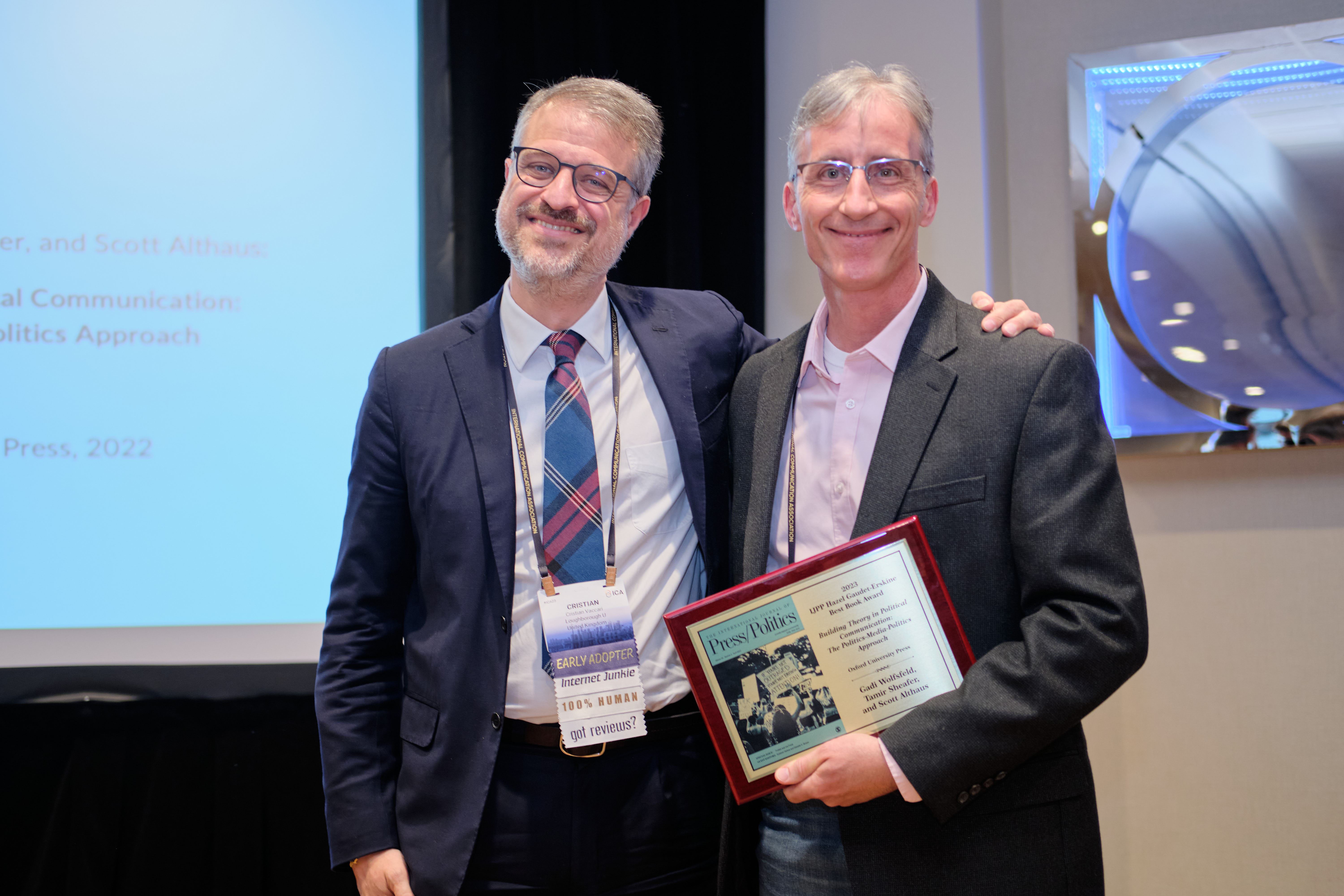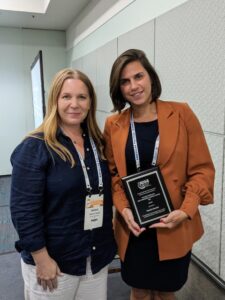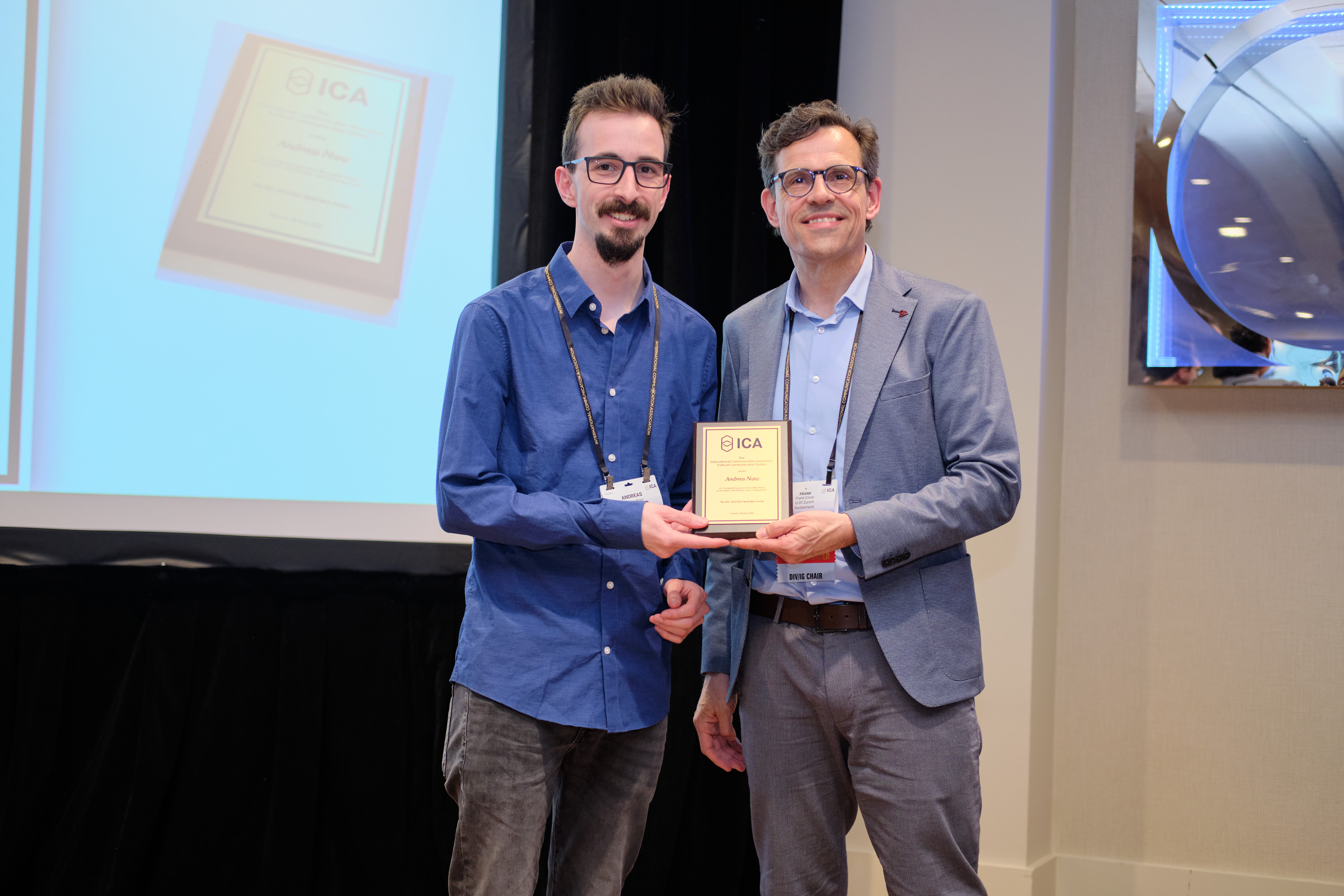Moving Beyond Western Dominance: Rethinking Political Communication Scholarship
Taberez Ahmed Neyazi, National University of Singapore
http://dx.doi.org/10.17169/refubium-41235, PDF
The origins of modern communication scholarship can largely be traced back to the socio-political and cultural contexts of the United States and Western Europe. This historical centrality has shaped the research paradigms, methodologies, and theoretical constructs that dominate the field. As a result, the voices and perspectives of non-Western scholars have often been overshadowed, leading to a skewed representation of global communication dynamics (Waisbord & Mellado, 2014). In the field of political communication, this Western dominance becomes even more pronounced. Historically, the evolution of political communication as a distinct field was closely tied to the development and the study of democratic processes such as elections, campaigns, and persuasion in the West, specifically the US. The subsequent institutionalization of the field in the 1970s further reinforced the US context as the main focus (Karpf et al., 2015). Consequently, much of the existing literature and research methodologies revolve around these Western-centric notions of democracy, political participation, and governance. This bias is not merely academic; it has practical implications for how political communication is understood, taught, and practiced globally. The continued existence of such biases in the age of globalization, digitalization and increased connectivity is both puzzling and concerning (George, 2022). It underscores the pressing need to expand and diversify scholarly perspectives to achieve a more comprehensive and inclusive understanding of global political communication.
The recent emphasis on “de-westernization” in political communication scholarship, as evidenced by publications in Political Communication, the flagship journal in the field, is a testament to this growing awareness (Lawrence et al., 2023). In communication studies, de-westernization entails a critical re-evaluation of the predominantly Western-centric theories, methodologies, and paradigms that have historically shaped the discipline (Curran & Park, 2000; Gunaratne, 2010; Iwabuchi, 2014; Thussu, 2009). Recognizing that communication patterns, media systems, and cultural contexts differ vastly across the globe, scholars have argued for a more inclusive and diversified approach that better represents non-Western societies (Waisbord & Mellado, 2014). By broadening the scope of research to include non-Western perspectives, political communication scholars aim to create a more comprehensive and inclusive understanding of the field. It is not merely about incorporating diversity for its own sake; it’s about addressing a historical oversight and ensuring that the field evolves to reflect the complexities of global political communication (George, 2022). In this issue, Silvio Waisbord (2023) has already offered a thorough definition of de-westernization and, hence, I focus more on how de-westernization can influence disciplinary identity and create a more inclusive field that might revisit—if not resolve—pressing concerns like misinformation, identity politics, and populist resurgence, among others, that political communication scholars are trying to address. However, the issue of de-westernization in political communication is highly challenging, given inherent structural constraints intrinsic to the field. In a recent critical essay with empirical insights, Phelan and Maeseele (2023) highlight the limited theoretical diversity in political communication research. They point to the prevailing influence of a dominant disciplinary mindset which, despite acknowledging paradigmatic disparities, equates methodological rigor with quantitative methodologies (see also Karpf et al., 2015).
I want to highlight two critical aspects that demand immediate attention. The first pertains to the prevailing epistemological dominance of the quantitative tradition in political communication scholarship. The second concerns the oversight of spatial hegemony and the intrinsic biases of scholars aiming to decentralize, if not de-westernize, the field.
Marginalization of Qualitative Scholarship and Epistemological Biases
Despite the important contributions of qualitative research to the field of political communication, qualitative scholarship remains at the margin (Gagrčin & Butkowski, 2023; Karpf et al., 2015). This is particularly puzzling given that many seminal texts and theories within political communication have their roots in qualitative and interpretative methodologies (see Lawrance, 2023). Karpf et al. (2015) argue that the marginalization of qualitative methods has resulted in “an unnecessary and counterproductive narrowing of our ability to understand central aspects of political communication and how they are changing” (p.1890). These central aspects of political communication are multifaceted and extend beyond the simple understanding of voter behavior, partisan affiliations, and the ebb and flow of public opinion.
Although the United States and Western Europe often dominate discussions on political communication due to their influential media landscapes and academic dominance, the field is by no means limited to these regions. Diversity in political communication becomes apparent when one steps out of the predominantly researched terrains of the US and Western Europe. Across the globe, in countries and cultures with diverse political systems and societal norms, political communication is manifested in unique and intricate ways. From grassroots movements in Asia and Africa to political advertisements in Latin America, and from the role played by social media in uprisings in the Arab world to indigenous communication strategies in the Pacific, the spectrum of political communication is vast and varied. Recognizing this diversity is crucial for a holistic understanding of the field and for appreciating the myriad ways in which political messages are crafted and consumed worldwide.
In India, for instance, Rajagopal (2000) provides a critical analysis of the advent of television and its relationship with the rise of right-wing politics that has changed the very course of Indian politics. He also contends that a close nexus exists between the politics of market reforms and the growth of communication technology. In Pakistan, Shakil (2000) demonstrates how the media and intellectuals have been granted little space to develop an autonomous public sphere in the country. Akhtar’s study also highlights the issue of self-censorship and various tactics used by the government to pressure the media to operate within the boundaries set by government press officers. African nations, as explored by Manyozo (2009), show an evolving landscape with community radios playing pivotal roles in political mobilization, while in China Yang (2013) has delved into the intricate dynamics of digital communication platforms like WeChat in state-society negotiations. It is to be noted that the works I have listed here are by no means an exhaustive list of important scholarly contributions that fall under the umbrella of political communication.
Importantly, in comparison to the US and Western Europe, which have a strong quantitative tradition alongside qualitative scholarship, political communication scholarship in the global South is predominantly qualitative. Most of the works that I have highlighted use qualitative methods. Hence, the marginalization of qualitative scholarship has, in essence, resulted in the marginalization of knowledge emanating from the South. However, the objective of de-westernizing political communication is not necessarily associated with overcoming a dominance of positivist epistemologies and quantitative methods and replacing them with post-positivist epistemologies and qualitative methods. Rather, the issue is much deeper and ingrained with the positionality of scholars engaged in political communication scholarship. This also raises the question of what needs to be de-westernized, as succinctly posed by Waisbord and Mellado (2014). Should we reconsider the subjects we study, the evidence we rely upon, our theoretical and methodological viewpoints, the questions we pose in our research, or even the prevailing norms and values within our academic and professional cultures?
Embracing Non-Western Perspectives and Epistemologies
This leads to my second point. I would argue that being self-reflective and sensitive to one’s biases should be the first step if we want to de-westernize the study of political communication. Let me explain this by discussing some of the recent attempts towards bringing diversity to the disciplinary identity of political communication and how these attempts paradoxically perpetuate the very same biases and problems that scholars who are advocating de-westernization of the field have highlighted.
The evolving landscape of political communication research, particularly in the US and Europe, showcases an increasing intersection of identity politics, news, and digital platforms. The heightened focus on identity-based mobilization represents a shift towards understanding the complex dynamics between identity politics and media. Yet, there exists a significant gap in Western academic discourse: the long-standing exploration of identity politics and their intersection with media in non-Western contexts, particularly India and Indonesia, may offer important insights for understanding similar phenomena within Western context settings. Scholars in the South have been navigating and deciphering this intersection long before it emerged in the limelight in the US and Europe (Akhtar, 2000; Lim, 2005; Rajagopal, 2001; Kumar, 2011; Neyazi, 2018). Engaging with these existing works could immensely benefit our current endeavors, especially when it comes to understanding the nuances of race and ethnicity-based mobilization. As we witness a surge in such movements in the US and Europe, the insights from studies in the Global South could provide valuable reference and contribute to a richer and more nuanced discourse. This integration will not only enhance the existing knowledge repertoire but also expand our understanding, promoting constructive dialogues in the field of political communication.
Moreover, the current momentum in political communication research offers a valuable moment for introspection about the epistemological traditions that dominate the field. Historically, as noted by Karpf et al (2015), the dominant quantitative epistemological traditions in political communication research have often marginalized qualitative methodologies. However, the recent shift towards appreciating qualitative traditions, while praiseworthy, still falls short of meaningful epistemological decentralization. Non-Western research traditions, especially in regions like Asia and Africa, have a rich history of qualitative and interpretative research, as highlighted above. For a more holistic approach and diversification of the field, Western and European scholars must engage with and draw upon these non-Western epistemological traditions. Only through such collaborative scholarly engagement can political communication research truly reflect the complexities and convergences of global political dynamics and help redefine the identity of the discipline to appear more inclusive.
In a recent special issue of Political Communication, the editors, Coles and Lane, (2023) acknowledge the profound influence of race and ethnicity on global political and social realities, highlighting how these concepts are often sidelined in political communication research. They call for self-reflection, acknowledging the American-centric focus of the issue and the challenges in conceptualizing and measuring race. While they emphasize the need for continued conversations on the topic and counter potential skepticism by highlighting the importance of race and ethnicity in understanding contemporary political communication, they fail to acknowledge how race and ethnicity have been studied in the South, which has long been dealing with such issues. While they acknowledge their positionality as “American scholars trained in communication, our own decidedly ‘American’ conceptualization of race likely played a limiting role” (p.372). Such acknowledgment goes a long way in understanding the problem, but results in perpetuating the biases already entrenched in the field—that is the continued dominance of American perspectives in the study of political communication.
It must be noted that ethnicity has been used for explaining political participation in terms of voting behavior, political mobilization, and grassroots movements in the Asian and African contexts, particularly in India and Indonesia (Aspinall, 2005; Liddle & Mujani, 2007; Masuda & Yudhistira, 2020; Molaei, 2015; Moten, 2011). In India, for instance, identity politics has long been intertwined with the caste system. Political mobilization based on caste affiliations, especially among the historically marginalized Dalit (formerly referred to as “untouchables”) and Other Backward Classes (OBCs), has been a prominent feature of the nation’s post-independence political landscape (Jaffrelot, 2003). Similarly, religious identity plays a critical role in Indian politics with Hindu-Muslim dynamics influencing many aspects of political discourse (Basu, 2015; Jaffrelot, 1999). Indonesia, with its diverse ethnic and religious groups, has also witnessed the rise of identity-based politics, especially after the fall of Suharto’s New Order regime. Ethnic and religious identities, particularly Islamic identity, have been influential in shaping political alliances and narratives in this still nascent democracy (Balasubramaniam, 2007; Sebastian, Hasyim & Arifianto, 2020). In neighboring Malaysia too, the political landscape is deeply influenced by ethnic identity politics, notably among the Malay, Chinese, and Indian communities. The country’s major political coalitions, such as the Barisan Nasional and Pakatan Harapan, have traditionally been ethnically based, reflecting the significance of identity in Malaysian politics (Moten, 2011; Shamsul, 1997).
In India, violence engendered by identity politics has been a central aspect of political mobilization and existed long before the rise of digital media. In a seminal work, Rajagopal (2000) analyzed the intersection between traditional media, particularly television, and the exploitation of religious identity for political mobilization that resulted in the consolidation of right-wing Hindutva politics. The rise of digital media has certainly complicated the situation and misinformation has been weaponized by political actors against ethnic minorities to further marginalize them in the public sphere (Basu, 2021; Ghasiya, Ahnert & Sasahara, 2023). False information about communal incidents has led to mob violence in several instances (Amarasingam, Umar & Desai, 2022). In Indonesia, religious sentiments are often exploited on digital platforms, especially during election times, to malign candidates or communities (Salahudin et al., 2020). Although ethnic violence has not been a central feature of political mobilization in Indonesia, digital media has certainly been weaponized to create tension to facilitate political mobilization, especially during elections (See Lim, 2017). Such developments in India and Indonesia can help explain to some extent the recent resurgence of identity politics in the US because it is apparent that with the rise of digital media, unchecked misinformation can quickly inflame tensions and divisions, as observed in the controversies surrounding the 2016 and 2020 US elections.
Thanks to the global tectonic shift underway towards identity politics, there has been a significant change in political discourse and mobilization strategies. While identifying a theoretical gap in studying political mobilization Reddi, Kuo and Kreiss (2023), contend that present conceptualizations of, and discussions about, propaganda and mis- and disinformation do not adequately address the interplay between “power, inequality, race, gender, and other identities within empirical studies” (p.2202). However, they do not meaningfully engage with scholarships in the Global South, who have been exploring this intersection long before it gained broader attention in the US and Europe. Engaging with these existing works to unravel the nuances of race and ethnicity-based mobilization that intersect with digital political environment will allow for a more robust analysis and a richer interpretation when applied to new contexts.
Conclusion
In conclusion, the evolution of political communication scholarship has been undeniably influenced by Western-centric paradigms, methodologies, and theoretical constructs, which have often marginalized the rich insights and diverse perspectives offered by non-Western scholars. This American-European dominance has led to a narrow understanding of global political communication dynamics and poses a significant challenge to the broader goal of achieving an inclusive, comprehensive understanding of political communication. The movement towards “de-westernization” signals a growing awareness of this imbalance and underscores the need for self-reflection and productive engagement with non-Western perspectives, particularly those from the South. It is therefore important to prioritize self-reflection over emphasizing structural barriers when aiming to de-westernize the discipline. Such self-reflection is crucial because we, in our roles as researchers, editors, reviewers, and event planners, are the ones who shape the field of political communication (Rossini, 2023). Addressing these disparities is not merely about diversifying the voices within the field; it’s a crucial endeavor to foster a richer, more nuanced discourse that genuinely represents the vast complexities of political dynamics globally. As political communication continues to be a pivotal field in understanding our interconnected world, it is paramount that scholars remain committed to broadening horizons, engaging in intercultural dialogues, and embracing a meaningful global perspective.
References
Akhtar, R. S. (2000). Media, Religion and Politics in Pakistan. Karachi: Oxford University Press.
Amarasingam, A., Umar, S., & Desai, S. (2022). “Fight, Die, and If Required Kill”: Hindu Nationalism, Misinformation, and Islamophobia in India. Religions, 13(5), 380.
Aspinall, E. (2005). Elections and the Normalization of Politics in Indonesia. South East Asia Research, 13(2), 117-156.
Balasubramaniam, V. (2007). A divided nation: Malay political dominance, Bumiputera material advancement and national identity in Malaysia. National Identities, 9(1), 35-48.
Basu, A. (2015). Violent conjunctures in democratic India. New York: Cambridge University Press.
Basu, D. (2021). Majoritarian politics and hate crimes against religious minorities: Evidence from India, 2009–2018. World Development, 146, 105540.
Coles, S. M., & Lane, D. (2023). Race and Ethnicity as Foundational Forces in Political Communication: Special Issue Introduction. Political Communication, 40(4), 367-376.
Curran, J., & Park, M. J. (Ed.). (2000). De-westernizing media studies. London: Routledge.
Ghasiya, P., Ahnert, G., & Sasahara, K. (2023). Identifying Themes of Right-Wing Extremism in Hindutva Discourse on Twitter. Social Media+ Society, 9(3), 20563051231199457.
Gagrčin, E. & Butkowski, C. (2023). Out of Sight, Out of Mind? Qualitative Methods in Political Communication Research. Political Communication Report, 27, refubium.fu-berlin.de, https://doi.org/10.17169/refubium-39042.
George, C. (2022). If Political Communication is Western in all but name, why not just rename it? The case for provincialising the field. The case for provincialising the field (May 27, 2022).
Gunaratne, S. A. (2010). De-westernizing communication/social science research: Opportunities and limitations. Media, culture & society, 32(3), 473-500.
Iwabuchi, K. (2014). De-westernisation, inter-Asian referencing and beyond. European journal of cultural studies, 17(1), 44-57.
Lawrence, R. G., Arceneaux, K., Clemm von Hohenberg, B., Dunaway, J., Esser, F., Kreiss, D., Rinke, E. M., & Thorson, K. (2023). New Methods,“Old” Methods: Emerging Trends and Challenges in Political Communication Research. Political Communication Report, 27, http://dx.doi.org/10.17169/refubium-39044
Liddle, R. W., & Mujani, S. (2007). Leadership, party, and religion: Explaining voting behavior in Indonesia. Comparative Political Studies, 40(7), 832-857.
Lim, M. (2005). Islamic radicalism and anti-Americanism in Indonesia: The role of the internet. Washington, DC: East-West Center.
Lim, M. (2017). Freedom to hate: social media, algorithmic enclaves, and the rise of tribal nationalism in Indonesia. Critical Asian Studies, 49(3), 411-427.
Jaffrelot, C. (2003). India’s silent revolution: the Rise of the Lower Castes in North India. New York: Columbia University Press.
Jaffrelot, C. (1999). The Hindu nationalist movement and Indian politics: 1925 to the 1990s: strategies of identity-building, implantation and mobilisation. New Delhi: Penguin Books.
Karpf, D., Kreiss, D., Nielsen, R. K., & Powers, M. (2015). The Role of Qualitative Methods in Political Communication Research: Past, Present, and Future Introduction. International journal of communication (Online), 1888-1907.
Kumar, A. (2011). The making of a small state: Populist social mobilisation and the Hindi press in the Uttarakhand movement. New Delhi: Orient Blackswan.
Manyozo, L. (2009). Mobilizing rural and community radio in Africa. Ecquid novi, 30(1), 1-23.
Masuda, K., & Yudhistira, M. H. (2020). Does education secularize the Islamic population? The effect of years of schooling on religiosity, voting, and pluralism in Indonesia. World Development, 130, 104915.
Molaei, H. (2015). Discursive opportunity structure and the contribution of social media to the success of social movements in Indonesia. Information, Communication & Society, 18(1), 94-108.
Moten, A. (2011). Changing Political Culture and Electoral Behavior in Malaysia. Asian Affairs: An American Review, 38(1), 39–56.
Neyazi, T. A. (2018). Political communication and mobilisation: The Hindi media in India. New Delhi and Cambridge: Cambridge University Press.
Phelan, S., & Maeseele, P. (2023). Where is ‘the political’ in the journal Political Communication? On the hegemonic articulation of a disciplinary identity. Annals of the International Communication Association, 47(2), 202-221.
Rajagopal, A. (2001). Politics after Television: Hindu Nationalism and the Reshaping of the Public Sphere in India. Cambridge: Cambridge University Press.
Reddi, M., Kuo, R., & Kreiss, D. (2023). Identity propaganda: Racial narratives and disinformation. New Media & Society, 25(8), 2201-2218.
Rossini, P. (2023). Reassessing the role of inclusion in political communication research. Political Communication, 40(5), 676-680.
Salahudin, Nurmandi, A., Jubba, H., Qodir, Z., Jainuri, & Paryanto. (2020). Islamic political polarisation on social media during the 2019 presidential election in Indonesia. Asian Affairs, 51(3), 656-671.
Sebastian, L. C., Hasyim, S., & Arifianto, A. R. (Eds.). (2020). Rising Islamic conservatism in Indonesia: Islamic groups and identity politics. Routledge.
Shamsul, A. B. (1997). Identity construction, nation formation, and Islamic revivalism in Malaysia. Islam in an era of nation-states: Politics and religious renewal in Muslim Southeast Asia, 207-227.
Thussu, D. K. (Ed.). (2009). Internationalizing media studies. London: Routledge.
Waisbord, S., & Mellado, C. (2014). De-westernizing communication studies: A reassessment. Communication theory, 24(4), 361-372.
Waisbord, S. (2022). What is next for de-westernizing communication studies?. Journal of Multicultural Discourses, 17(1), 26-33.
Yang, G. (2009). The power of the Internet in China: Citizen activism online. New York: Columbia University Press.
Taberez Ahmed Neyazi is an Assistant Professor of Political Communication and New Media at the Department of Communications and New Media and a Principal Investigator at the Centre for Trusted Internet and Community at the National University of Singapore. His research interests include political communication and public opinion; digital political campaign and computational social science. He is the author of Political communication and mobilization: The Hindi media in India, Cambridge University Press, 2018 and has published several journal articles.




